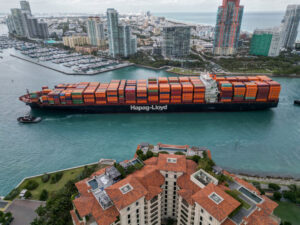Britain’s biggest port operator Associated British Ports (ABP) is travelling to Strasbourg on March 7, 2016 to make the case against the proposals that will determine the future of the UK's port industry before voting on the regulation on March, 8.
The vote comes as a new survey reveals that the majority of adults from across six major European countries prefer their own national governments to be responsible for overseeing the activities of commercial sea ports.
The European survey conducted by independent pollster ComRes covered Britain, France, Germany, Spain, Italy and Poland, and shows 66% think that national governments where the ports are based should be responsible for overseeing the activities of commercial sea ports in EU countries, against just 22% who think the European Union should be responsible.
Support for national government oversight was strongest in the UK and Germany, with 74% and 71% respectively.
The UK ports industry is united in opposition to the proposals and is urging MEPs to vote against.
PTI undertook a poll in 2015 which highlighted the majority of readers preferred ports to be governed in a mixed structure of nationalised and privatised elements.
James Cooper, CEO of ABP and Chairman of the UK Major Ports Group, said: “Privately-financed ports are engines of growth and they will be undermined by this new EU Ports Regulation if adopted.
“While the Regulation claims to promote competition, the effect will be to prevent privately-financed ports operating as fully commercial businesses. The ambiguity in the current text is unhelpful, as it creates uncertainty and puts essential future investment, growth and jobs at risk. It is simply not clear how this regulation will add value to European ports.”
Katharine Peacock, Managing Director of ComRes, said: “A clear majority of people across each of the six countries think that national governments should be responsible for commercial sea ports within their borders, not the EU.
“Given the widespread importance placed on the contribution of sea ports to national economies, it is notable that despite some variations between countries, there is broad consensus that sea ports should remain the remit of member states rather than Brussels.”
The UK is presently making up its mind on its overall membership of the European Union in the decision termed as “Brexit”.
The Brexit debate is hinging on several factors, however the British economy is a primary one. Those campaigning to stay in the EU – which includes UK Prime Minister David Cameron – believe Britain can trade and cooperate better with Europe when in a political union.
Those who campaign to leave argue the EU puts too many regulations on Britain’s economy and upends its sovereignty.







